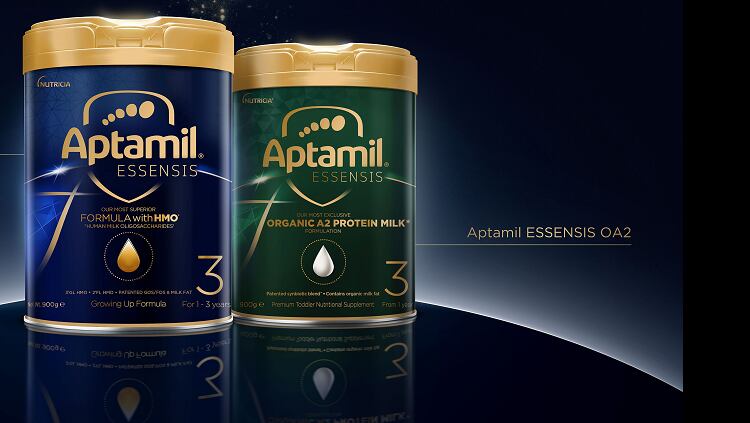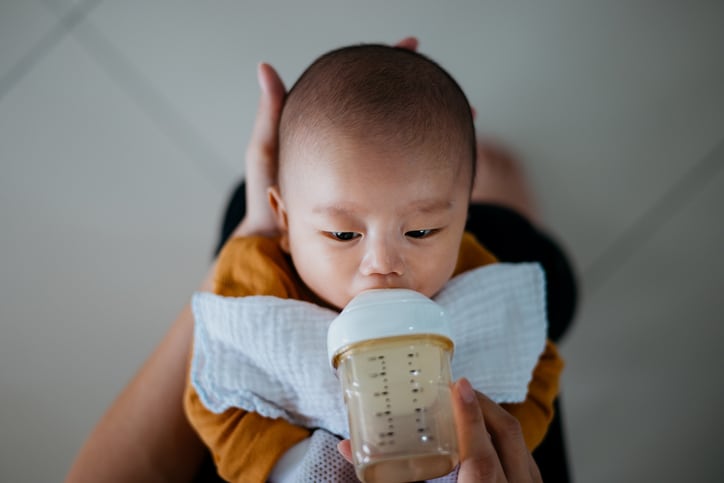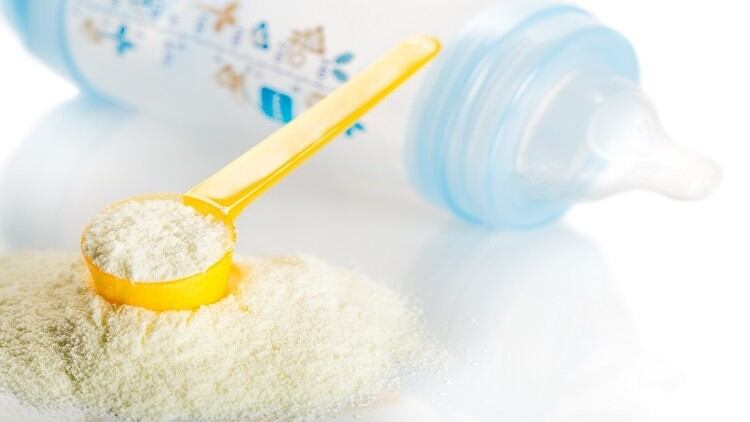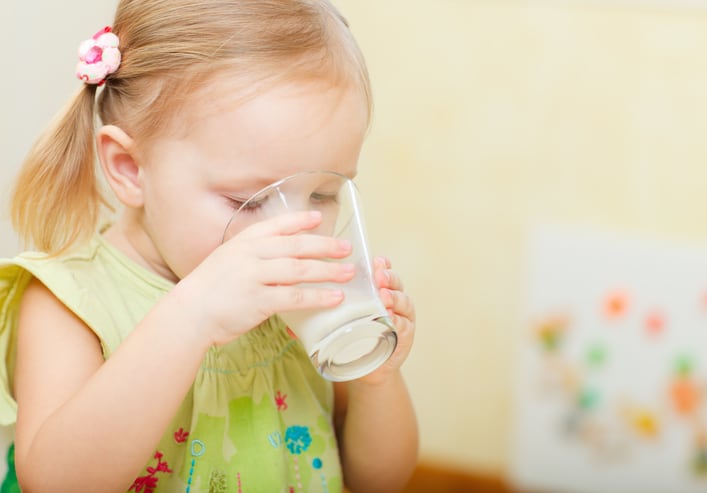“Infant milk formulas have posted yet another year of solid growth”, said Juergen Esser, Group Deputy CEO who is in change of finance, technology & data at Danone during his presentation of the company’s FY24 financial results on February 26.
Strong growth in Danone’s Aptamil infant formula brand was seen throughout the whole of last year, he added.
China and India were particularly mentioned for delivering strong sales in the infant formula sector.
In China, the company’s infant formula sales have been driven by new innovations, with CEO Antoine de Saint-Affrique highlighting the importance of “science driven innovation” in playing a critical role in this sector.
One of Danone’s notable innovations is its Aptamil Essensis infant formula which contains the probiotic strain Bifidobacteria breve M-16V and prebiotics short-chain galacto-oligosaccharides (scGOS) and long-chain fructo-oligosaccharides (lcFOS) in the ratio of nine to one.
Last September, it also launched in Hong Kong infant formulas formulated with Nuturis - which features large milk lipid droplets said to closely mimic those in breast milk.
“Nuturis is pioneering innovation based on advanced breast milk research. It was launched softly in Hong Kong only a few months ago, and shows encouraging early signs.
“It comes on the back of Essensis, another platinum format launched in China in late 2023, which is now meaningfully adding to our growth in China,” said de Saint-Affrique.
Esser added that the company has continued to deliver significant market share gain in China’s infant formula market, on the back of a successful premiumisation strategy.
“Our premiumisation strategy is working well and indeed, we are particularly pleased with what we call the Essensis platform, which we launched over the last quarters into the ultra premium sectors, this Essensis range is already contributing greatly to our market share performance,” he said.
Based on data from Kantar Worldpanel, Aptamil was the number two infant formula brand in China with a market share of 14 per cent, and is only behind China’s homegrown brand Feihe, which enjoyed a market share of 17.5 per cent as of December 2024.
Yili, Friso, and The a2 Milk Company took the third to fifth spot in terms of market share size.
Between June and December 2024, Aptamil’s market share grew 0.3 per cent, which was the same rate as Feihe.
Yili, Nestle, and The a2 Milk Company registered greater market share growth, increasing at a rate of 1.1 per cent, 0.7 per cent, and 0.4 per cent respectively, based on Kantar Worldpanel’s data.
The benefits of its premiumisation strategy was also notable in India, where Danone reported strong performance, especially in the super premium segment.
“Worth mentioning is the strong performance in India, especially in the IMF (infant milk formula) super premium segment, where we are growing two times faster than the market,” said Esser.
Across Asia-Pacific, Middle East and Africa (AMEA) where India is also included, sales of Aptamil had grown double digit.
In total, Danone’s total sales for FY24 was €27.4bn (US$28.8bn), up 4.3 per cent on a like-for-like basis.
Recurring operating income, or recurring profit, was up 2.2 per cent from €3.48bn (US$3.66bn) to €3.56bn (US$3.74bn).
“More relevant than ever”: Spotlight on four key categories
Aside from infant nutrition, Danone also saw steady growth in its protein products and yogurt targeted at gut health.
It will therefore double down on its “health through food” strategy, with particular interest in four categories, namely gut health, protein, immunity, and hydration.
CEO Antoine de Saint-Affrique said these categories that have become “more relevant than ever”.
As you may recall from our June 2024 Capital Market Events, we are convinced that the food industry is at a tipping point and that we feel equipped and relevant for the world to come. We start seeing some tangible signs of it. Firstly, the categories in which we are playing keep going faster than the average of food, gut health, the microbiome, proteins, healthy, addition, immunity, are more relevant than ever.
Danone CEO Antoine de Saint-Affrique
The gut health and protein categories are driven by a broader trend around consumers living a more active lifestyle.
“Both these journeys drive a need for protein and for better gut health,” said de Saint-Affrique, adding how this has been reflected in the US, with its Oikos high protein yogurt hitting retail sales value of over US$1bn.
Hydration, on the other hand, has seen traction in the China market.
This has also turned Danone’s Mizone brand of electrolyte drinks from an underperforming unit into a growing business.
“We have also proven that with proper focus and discipline, we can turn around underperformance.
“Mizone is a good example. It has again grown double digit in FY24 on the back of stronger fundamentals combined with relevant innovation. Our electrolyte products, which many of you had tasted in June, are showing encouraging results,” said de Saint-Affrique.
Elsewhere in India, blood sugar management for diabetics has also driven sales of its Protinex Diabetes Care, said Esser.
The product is categorised as Food for Special Dietary Use in India. It is said to contain high fibre, protein and has a low glycaemic index (GI) of 17.
de Saint-Affrique reiterated Danone’s “health through food” mission in meeting market demands for healthy and tasty products.
“As we enter the next cluster of renew we are progressively becoming a different company, truly science based and consumer and patient focused, a company which stands for ‘health through food’, a company which is rediscovering the power of execution and consistency,” he said.
This would be achieved by investing in future looking science and turning it into “relevant, consumer and patient-centric innovations,” he added.
Over 50% sales from pharmacies and other non mass retail channels
Danone is also reaching out to a wider group of audience by expanding into retail channels such as hospitals, pharmacies, and home care.
More than 50 per cent of its sales came from these “non mass retail channels.”
“We are growing in these channels, such as hospitals, pharmacies, and homecare two to three times faster than mass retail.
“We reach more people in different places at different moments in their life. This contributes as well to the resilience of our model,” said de Saint-Affrique.





